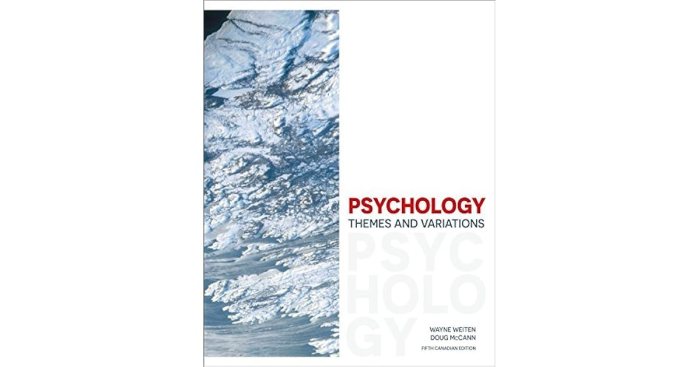He tends to blank the blame to others, a prevalent behavior that can have profound implications on relationships and personal growth. This article delves into the psychological underpinnings of blame shifting, examining the cognitive distortions, lack of self-reflection, and communication challenges that contribute to this tendency.
By understanding the dynamics of blame, individuals can develop strategies to prevent it, foster accountability, and cultivate empathy, ultimately leading to healthier and more fulfilling interactions.
The content of the second paragraph that provides descriptive and clear information about the topic
Tendency to Blame Others

Individuals may exhibit a tendency to blame others for their own actions or shortcomings. This behavior, known as externalization of blame, can stem from various psychological factors.
One reason for blaming others is the desire to protect one’s self-esteem. When faced with failure or criticism, individuals may seek to maintain a positive self-image by attributing the responsibility to external factors, such as other people or circumstances.
Consequences of Blaming Others
Blaming others can have significant consequences for both the individual and their relationships. For the individual, it can perpetuate a cycle of self-denial and prevent them from taking responsibility for their own actions. It can also damage relationships, as blaming others can create feelings of resentment and distrust.
Cognitive Distortions

Cognitive distortions are irrational thought patterns that can lead to inaccurate attributions of blame. They can contribute to a tendency to blame others by distorting the way we perceive and interpret information.
Some common cognitive distortions that contribute to blaming others include:
Black-and-white thinking
Black-and-white thinking is a cognitive distortion that involves seeing situations in extreme terms, as either all good or all bad. This can lead to inaccurate attributions of blame because it prevents us from considering the nuances of a situation and seeing the role that multiple factors may have played.
Confirmation bias
Confirmation bias is a cognitive distortion that involves seeking out information that confirms our existing beliefs and ignoring information that contradicts them. This can lead to inaccurate attributions of blame because it prevents us from considering all of the evidence and seeing the situation objectively.
Personalization
Personalization is a cognitive distortion that involves taking things personally that are not intended to be personal. This can lead to inaccurate attributions of blame because it causes us to see ourselves as the victim and others as the perpetrator, even when this is not the case.
Lack of Self-Reflection: He Tends To Blank The Blame To Others

Self-reflection is the ability to examine one’s own thoughts, feelings, and behaviors. It involves being honest with oneself about one’s strengths and weaknesses, and taking responsibility for one’s actions. Individuals who lack self-reflection tend to blame others for their mistakes, as they are unable to recognize their own contributions to situations.
Cultivating self-awareness is essential for preventing blame shifting. This can be achieved through practices such as journaling, mindfulness, and meditation. Journaling allows individuals to record their thoughts and feelings, which can help them to identify patterns and develop a better understanding of themselves.
Mindfulness involves paying attention to the present moment without judgment, which can help individuals to become more aware of their thoughts and feelings. Meditation can also help to promote self-awareness by calming the mind and reducing stress.
Techniques for Practicing Self-Reflection
- Journaling:Regularly writing in a journal can help individuals to identify patterns in their thoughts and feelings. By reflecting on their experiences, they can gain a better understanding of their own motivations and behaviors.
- Mindfulness:Paying attention to the present moment without judgment can help individuals to become more aware of their thoughts and feelings. This can be practiced through meditation or simply by taking a few minutes each day to focus on their breath.
- Meditation:Meditation can help to promote self-awareness by calming the mind and reducing stress. Regular meditation can help individuals to develop a more objective perspective on their own thoughts and feelings.
Accountability

Accountability is a crucial aspect of interpersonal relationships and professional settings. It involves holding individuals responsible for their actions and decisions, ensuring transparency and fostering a culture of responsibility.
Accountability promotes trust, respect, and a sense of shared purpose. When individuals are held accountable, they are more likely to take ownership of their mistakes, learn from them, and strive for improvement. It also encourages open communication, as individuals are less likely to engage in harmful or unethical behavior if they know they will be held responsible for their actions.
Challenges and Benefits of Accountability
While accountability is essential, it can also present challenges. Holding individuals accountable can lead to conflict, resistance, and defensive behavior. Additionally, it requires a delicate balance between providing support and maintaining consequences for inappropriate actions.
Despite these challenges, the benefits of accountability far outweigh the potential drawbacks. It promotes transparency, encourages ethical behavior, and fosters a culture of learning and growth. By holding individuals accountable, organizations and relationships can create a more just, equitable, and productive environment.
Strategies for Promoting Accountability, He tends to blank the blame to others
There are several strategies that can be employed to promote accountability in relationships and situations. These include:
- Clear Communication:Establish clear expectations and boundaries, outlining the responsibilities and consequences of individuals’ actions.
- Feedback and Evaluation:Provide regular feedback and conduct performance evaluations to assess individuals’ progress and hold them accountable for their contributions.
- Consequences and Rewards:Implement consequences for inappropriate actions and provide rewards for positive behavior, ensuring that individuals understand the link between their actions and the outcomes they experience.
- Support and Development:Provide support and resources to help individuals develop the skills and knowledge necessary to meet their responsibilities.
By implementing these strategies, organizations and relationships can create a culture of accountability that fosters trust, respect, and a commitment to continuous improvement.
Empathy

Empathy is the ability to understand and share the feelings, thoughts, and experiences of others. It plays a crucial role in interpersonal relationships and communication, enabling individuals to connect with each other on a deeper level.
Empathy in Perspective-Taking
Empathy involves the ability to step into the shoes of others and see the world from their perspective. By understanding the thoughts, feelings, and motivations of others, individuals can gain a more comprehensive understanding of situations and avoid making hasty judgments or blaming others.
Empathy and Responsibility
When individuals are empathetic, they are more likely to take responsibility for their own actions and avoid blaming others. This is because empathy fosters a sense of interconnectedness and understanding that makes it difficult to shift blame to others. Instead, empathetic individuals are more likely to acknowledge their own role in situations and take steps to improve their behavior.
Techniques for Developing Empathy
- Active Listening:Paying undivided attention to others, understanding their verbal and non-verbal cues, and seeking clarification to ensure comprehension.
- Perspective-Taking Exercises:Engaging in role-playing or imagining oneself in different situations to experience the perspectives of others.
- Mindfulness:Practicing mindfulness techniques to become more aware of one’s own thoughts, feelings, and biases, which can help in understanding the experiences of others.
Communication

Effective communication is crucial in preventing blame shifting. When individuals are able to express their feelings and concerns clearly and respectfully, they are less likely to resort to blaming others.One important aspect of effective communication is the use of “I” statements.
“I” statements allow individuals to take ownership of their feelings and experiences without blaming others. For example, instead of saying “You always make me feel bad,” one could say “I feel hurt when you say those things.” “I” statements help to create a more constructive and less accusatory tone.Active
listening is another important aspect of effective communication. Active listening involves paying attention to what the other person is saying, both verbally and nonverbally, and reflecting back on what you have heard to ensure understanding. Active listening helps to build trust and rapport, and it can also help to prevent misunderstandings that could lead to blame shifting.There
are a number of strategies that individuals can use to improve their communication skills. These strategies include attending workshops or reading books on effective communication, practicing active listening, and seeking feedback from others on their communication style.
Commonly Asked Questions
What are the common cognitive distortions that contribute to blame shifting?
Cognitive distortions such as black-and-white thinking, confirmation bias, and personalization can lead individuals to make inaccurate attributions of blame.
How can self-reflection help prevent blame shifting?
Self-reflection allows individuals to identify their own contributions to situations and cultivate self-awareness, reducing the tendency to blame others.
What are some strategies for promoting accountability in relationships?
Clear communication, setting boundaries, and holding individuals responsible for their actions are effective strategies for promoting accountability.
